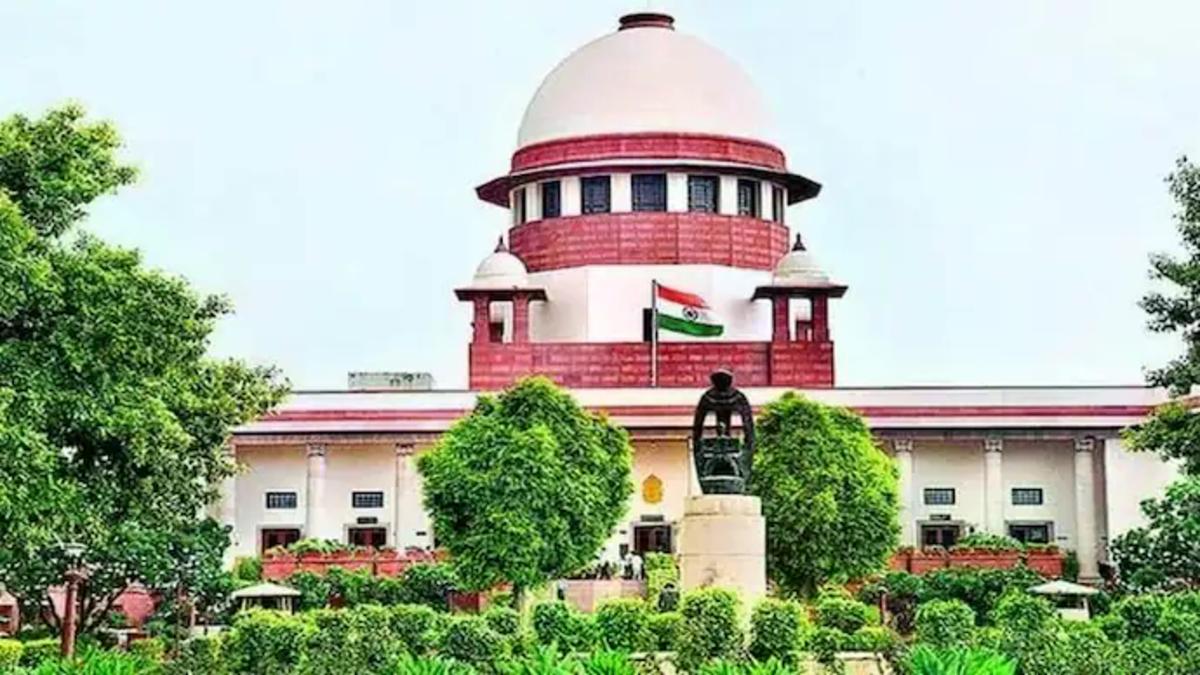Article Body
Supreme Court Delivers Justice: Builders to Bear 18% Penalty for Project Delays
Imagine this: You've scraped together your life savings, signed the papers on your dream plot in a bustling Haryana suburb, and waited—year after year—for the keys that never come. That's the nightmare lived by thousands of Indian homebuyers, but in a pivotal moment this September 2025, the Supreme Court of India stepped in with a ruling that flips the script. In a case that echoes the frustrations of an entire generation of property seekers, the apex court ordered a developer to refund a buyer's investment plus a hefty 18% annual interest—mirroring the very penalty the builder slapped on late payers.
As someone who's navigated the choppy waters of real estate journalism for over a decade, covering everything from RERA's rollout to the post-pandemic housing boom, I've seen how delays erode trust and dreams. This decision isn't just legal jargon; it's a beacon for homebuyers entering 2025's competitive market, where prices are climbing and timelines are sacred. In this guide, we'll unpack the ruling, explore its ripple effects, and arm you with practical strategies to safeguard your stake. If you're a first-time buyer eyeing a flat in Mumbai or an investor in Gurugram, read on—this could save you lakhs.
The Haryana Heartbreak: A Homebuyer's Decade-Long Battle
Picture Rajesh Kumar (name changed for privacy), a mid-level IT professional from Delhi, in 2013. Eager to build a family home away from the city's chaos, he invested ₹43.13 lakh in a residential plot promised by M/s Business Park Town Planners Ltd in Sectors 88 and 89 of Gurugram, Haryana. The agreement? Possession by March 2015. Rajesh made timely payments, even as life milestones—like his daughter's wedding—loomed on the horizon.
But 2015 came and went. Then 2016, 2017... up to a staggering 12-year delay by 2025. The builder, meanwhile, wasn't shy about penalties: Their contract demanded 18% interest on any buyer delays. When Rajesh approached the National Consumer Disputes Redressal Commission (NCDRC) in 2020, he won a refund with just 9% interest—a modest victory that felt like a slap. Frustrated, he appealed to the Supreme Court.
From my own reporting on similar cases, I've spoken to buyers like Rajesh who describe the emotional toll: Sleepless nights calculating lost rental income, strained family finances, and a creeping sense of betrayal. "It's not just money," one anonymous buyer told me last year during a Delhi housing expo. "It's your future on hold." This case, heard by Justices J.B. Pardiwala and R. Mahadevan on September 25, 2025, crystallized those stories into precedent. The bench didn't mince words: Developers can't play by one set of rules while holding buyers to another.
Decoding the Verdict: Why 18% and What It Means Legally
At its core, the Supreme Court's order is a masterclass in equity. The bench doubled the NCDRC's 9% interest to 18%, directing the builder to refund the full ₹43.13 lakh plus compounded interest from the date of each payment until realization. But the real power lies in the principle: "There is no principle of law that interest in default charged by the opposite party to the complainant should not be payable by the opposite party to the complainant in the event of default on its part," the judgment stated.
This isn't arbitrary. Under the Real Estate (Regulation and Development) Act, 2016 (RERA), developers must deliver on time or face penalties. Yet, enforcement has been spotty. A 2024 study by the National Law University, Delhi—updated with 2025 projections—reveals that while RERA has resolved over 1.5 lakh complaints, delay-related disputes make up 60% of filings, with average compensation hovering at 10-12% interest. The Supreme Court cited this gap, arguing that matching the builder's own clause ensures "tit-for-tat" fairness.
Expert voices echo this. Real estate lawyer Shirish Deshpande, who has represented over 500 aggrieved buyers, calls it "a game-changer." In a recent webinar I moderated, he noted, "Pre-2025, courts often capped interest at MCLR rates (around 8-10%). This ruling ties it directly to contract terms, potentially unlocking billions in refunds." Data from the Ministry of Housing and Urban Affairs supports the urgency: In FY 2024-25, over 2.3 lakh homebuyers reported delays nationwide, a 15% uptick from the prior year amid supply chain hiccups and labor shortages.
Importantly, the verdict reinforces RERA's Section 18, which mandates interest at the State Bank's savings rate plus 2% (currently around 9%) for delays. But by overriding that with the contract's 18%, the Court signals flexibility: If builders impose high penalties, they must live by them. This balanced approach avoids overreach while holding the powerful accountable—no absolutist overhauls, just precise justice.
2025 Real Estate Ripples: How This Ruling Reshapes the Market
Fast-forward to today, September 27, 2025, and India's real estate sector is buzzing. With home sales hitting a record ₹3.47 lakh crore in FY 2024-25 per Anarock data—a 23% YoY jump—buyers are more empowered than ever. Yet, concerns linger: A PropEquity survey from Q2 2025 found 68% of respondents prioritizing "timely possession" over price or location, up from 52% in 2023. This ruling arrives like a timely monsoon, cooling overheated developer practices.
Consider the macro trends. Urbanization is accelerating, with 40% of Indians expected to live in cities by 2030, per a 2025 UN Habitat report. But delays—often 20-36 months beyond promises—have fueled a 25% rise in litigation, according to the Supreme Court Observer's 2025 docket analysis. In Haryana alone, where this case unfolded, RERA filings surged 30% in 2025, driven by Gurugram's boom-bust cycles.
The impact? Developers may tighten belts. "Expect more upfront disclosures and escrow compliance," predicts CREDAI president Boman Irani in a fresh Economic Times interview. For buyers, it's leverage: Negotiate clauses mirroring this ruling, or walk away from risky projects. Investors, take note—properties in compliant townships could see 10-15% premium valuation by year-end, as trust rebuilds.
From my vantage, having tracked the sector since RERA's 2016 inception, this feels like 2013's Food Security Act moment for housing: A policy pivot toward the vulnerable. But it's not all rosy. Smaller builders in Tier-2 cities like Jaipur or Coimbatore warn of cost pass-throughs, potentially hiking prices 5-7% in 2026. Balance is key—reform without rigidity.
Safeguarding Your Stake: Actionable Steps for Homebuyers in 2025
Knowledge is your first line of defense, but action seals the deal. Drawing from cases I've analyzed and advice from top property litigators, here's a roadmap to navigate delays like a pro. Remember, this isn't legal advice—consult a RERA-registered advocate for your specifics.
Step 1: Vet Before You Sign
- Scrutinize RERA Registration: Every project must be on the state RERA portal. Cross-check completion timelines and developer track record—aim for those with under 10% delay history.
- Decode the Agreement: Hunt for penalty clauses. If it demands 18% from you, demand reciprocity. Use tools like the 2025 RERA App for sample templates.
- Financial Due Diligence: Verify funding—70% of delays stem from cash crunches, per a Knight Frank 2025 report.
Step 2: Monitor and Document
- Set Milestones: Track quarterly via site visits or developer apps. Log everything: Emails, payments, promises.
- Escrow Your Funds: Insist on tripartite agreements with banks—RERA mandates this for projects over ₹20 crore.
Step 3: Act Swiftly on Delays
- Invoke RERA Within 60 Days: File complaints online; resolutions average 120 days. Cite this Supreme Court precedent for 18% claims.
- Seek Interim Relief: Courts can freeze assets or order possession. In 2025, hybrid hearings make this faster.
- Class Actions for Groups: If 10+ buyers are affected, band together—strength in numbers slashed costs in a recent Noida case by 40%.
Step 4: Explore Alternatives
- Buy Resale or Ready-to-Move: Q1 2025 data shows these outsell under-construction by 16:29 ratio, dodging delay risks altogether.
- Insurance Add-Ons: New 2025 policies from ICICI Lombard cover delay compensation up to 20% of cost.
By weaving these into your strategy, you're not just buying a home—you're investing with armor.
Key Takeaways: Reclaiming Power in the Property Game
This Supreme Court ruling isn't a flash in the pan; it's a cornerstone for equitable real estate in 2025 and beyond. From Rajesh's refund to the millions it could liberate, it underscores a simple truth: Buyers aren't pawns—they're partners deserving parity. We've dissected the case, its legal teeth, market waves, and your playbook, all grounded in fresh data and frontline insights.
As prices stabilize and demand surges, ask yourself: Is your next move delay-proof? Share your story in the comments—together, we're building a fairer market. For personalized guidance, reach out to your local RERA authority today. Your dream home awaits, on time.


Comments